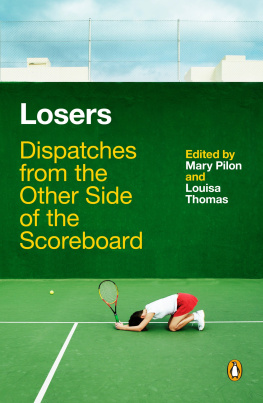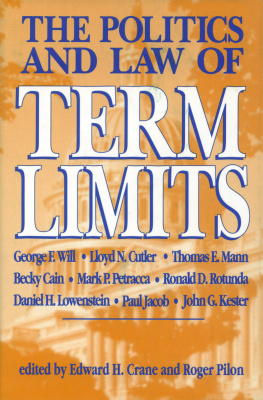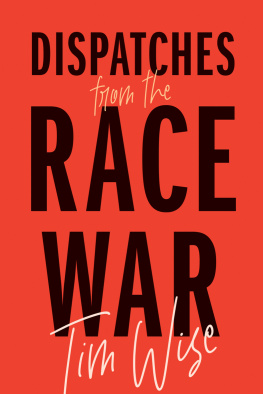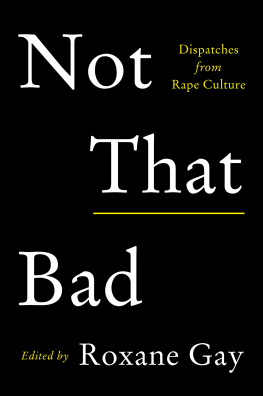Mary Pilon - Losers: Dispatches from the Other Side of the Scoreboard
Here you can read online Mary Pilon - Losers: Dispatches from the Other Side of the Scoreboard full text of the book (entire story) in english for free. Download pdf and epub, get meaning, cover and reviews about this ebook. year: 2020, publisher: Penguin Publishing Group, genre: Non-fiction. Description of the work, (preface) as well as reviews are available. Best literature library LitArk.com created for fans of good reading and offers a wide selection of genres:
Romance novel
Science fiction
Adventure
Detective
Science
History
Home and family
Prose
Art
Politics
Computer
Non-fiction
Religion
Business
Children
Humor
Choose a favorite category and find really read worthwhile books. Enjoy immersion in the world of imagination, feel the emotions of the characters or learn something new for yourself, make an fascinating discovery.
- Book:Losers: Dispatches from the Other Side of the Scoreboard
- Author:
- Publisher:Penguin Publishing Group
- Genre:
- Year:2020
- Rating:5 / 5
- Favourites:Add to favourites
- Your mark:
- 100
- 1
- 2
- 3
- 4
- 5
Losers: Dispatches from the Other Side of the Scoreboard: summary, description and annotation
We offer to read an annotation, description, summary or preface (depends on what the author of the book "Losers: Dispatches from the Other Side of the Scoreboard" wrote himself). If you haven't found the necessary information about the book — write in the comments, we will try to find it.
Mary Pilon: author's other books
Who wrote Losers: Dispatches from the Other Side of the Scoreboard? Find out the surname, the name of the author of the book and a list of all author's works by series.
Losers: Dispatches from the Other Side of the Scoreboard — read online for free the complete book (whole text) full work
Below is the text of the book, divided by pages. System saving the place of the last page read, allows you to conveniently read the book "Losers: Dispatches from the Other Side of the Scoreboard" online for free, without having to search again every time where you left off. Put a bookmark, and you can go to the page where you finished reading at any time.
Font size:
Interval:
Bookmark:
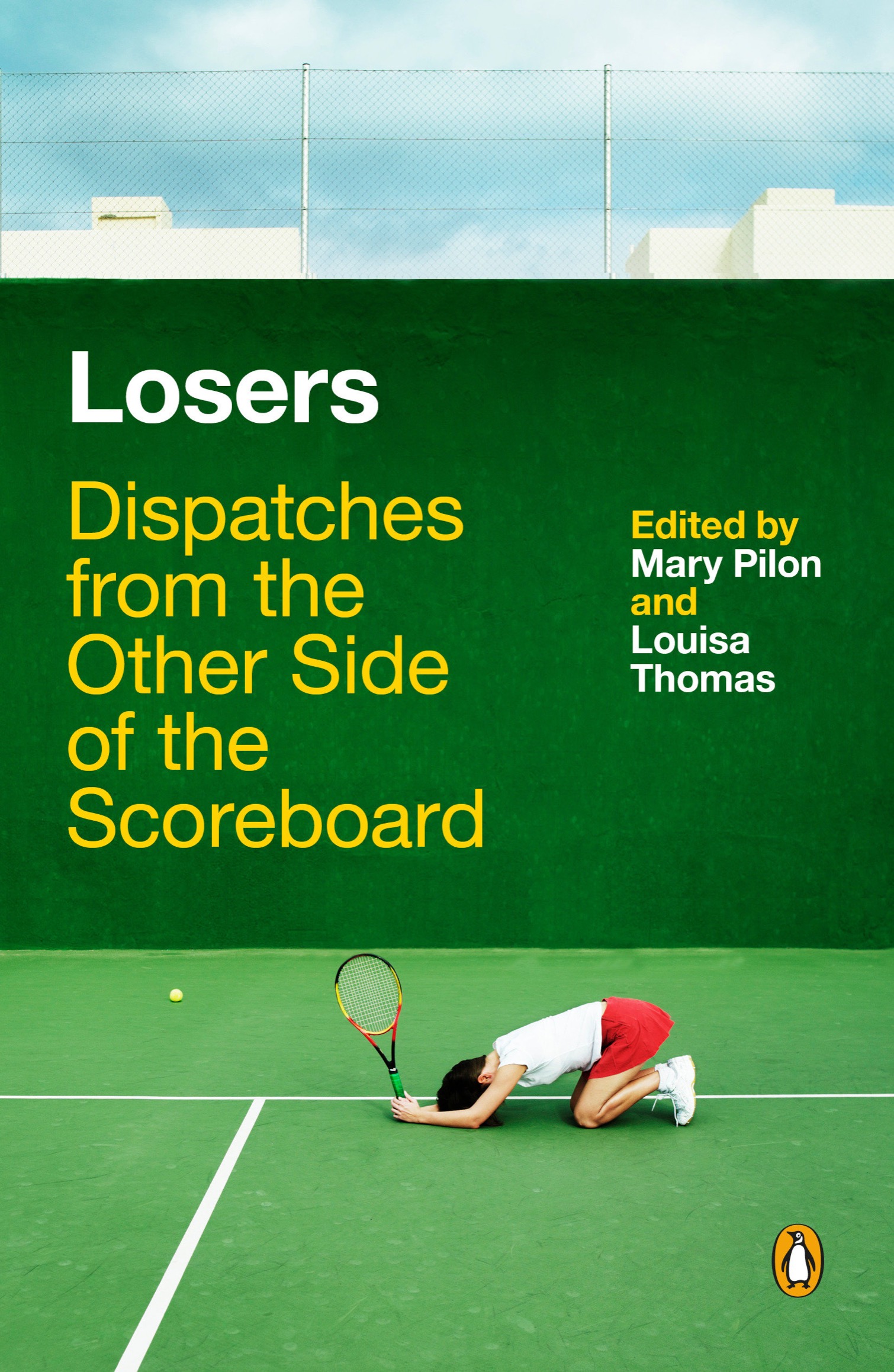
Advance Praise for Losers
If sports do in fact show us the best of the human spirit, that revelation lies not in championships and victory but in the cold morning of defeat. This book chronicles how human beings respond to failure, how they rise and try again, because thats what living is. It is essential readingand the self-examination it prompts is essential too.
Wright Thompson, author of The Cost of These Dreams
Without the threat of loss, there is no meaning in sport. This new and thrillingly varied collection is as essential as the turf beneath your cleats.
Ben McGrath, staff writer for The New Yorker
Pilon and Thomas explore the significance losing and defeat has on the lives of athletes and fans in this thoughtful anthology.... A stirring tribute to losing, one of lifes greatest teachers.
Publishers Weekly
A few of the bylines [in Losers] are well-known, especially Gay Talese and Arthur Conan Doyle. Refreshingly, though, most of the contributors are less well-known to general readers, and their subjects range from obscure to famous.... As a collection, the book holds together well even for nonsports fans.... In the introduction, the editors write, This book is for the loserswhich is to say, for all of us. They deliver.
Kirkus Reviews
PENGUIN BOOKS
LOSERS
Mary Pilon is the author of the New York Times bestseller The Monopolists and The Kevin Show. She regularly contributes to The New Yorker, Esquire, MSNBC, Vice, and Politico. Pilon has also worked as a staff reporter at the New York Times and the Wall Street Journal and was a producer for NBC Sports at the 2016 Olympics. Visit her website at marypilon.com.
Louisa Thomas is the author of Louisa: The Extraordinary Life of Mrs. Adams; Conscience: Two Soldiers, Two Pacifists, One FamilyA Test of Will and Faith in World War I; and, with John Urschel, Mind and Matter: A Life in Math and Football. She is a New Yorker staff writer. Her writing has also appeared in the New York Times, the Washington Post, New York, TheAtlantic, Vogue, and other places.
Both Pilon and Thomas are seasoned losers.
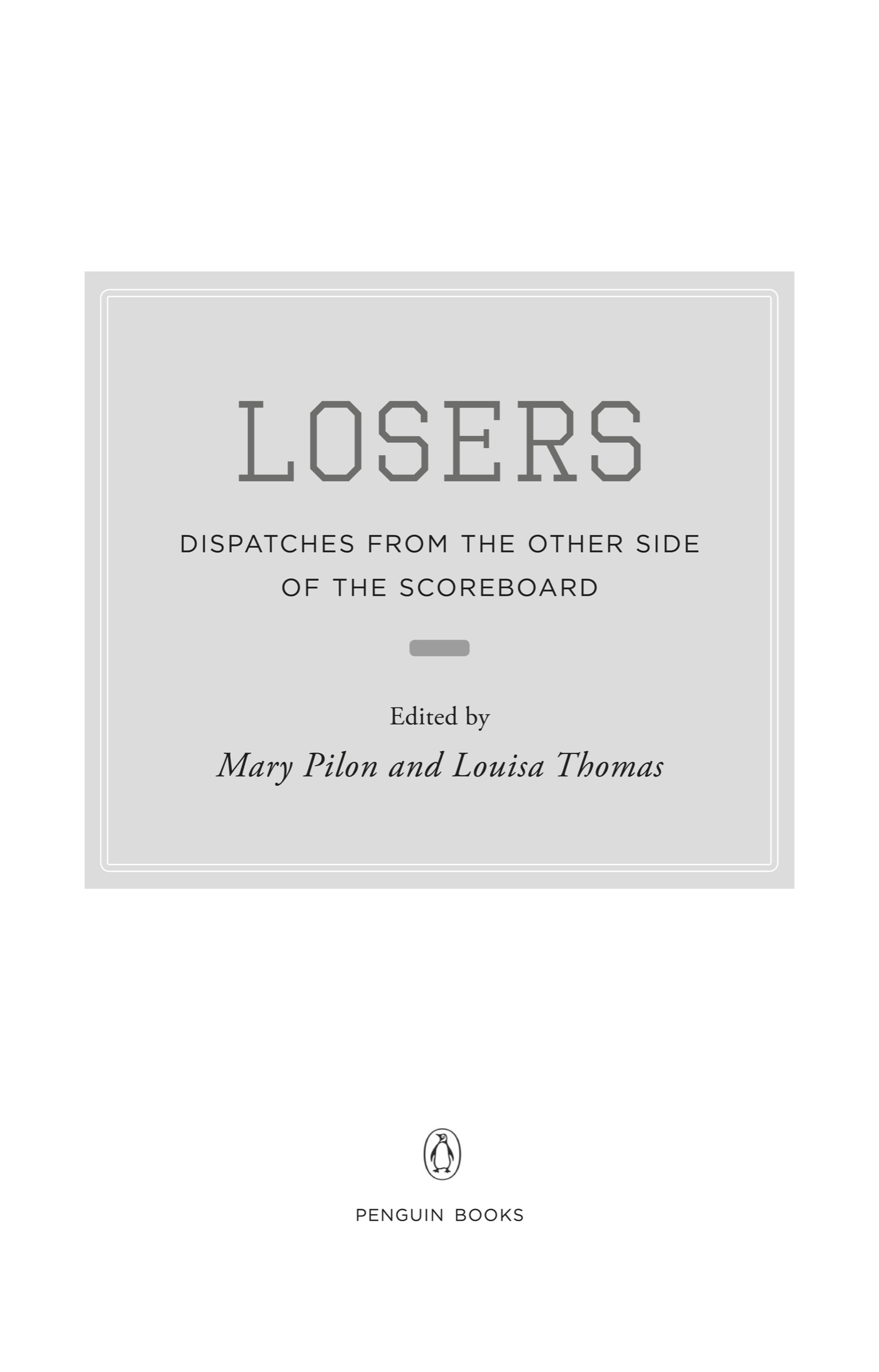
PENGUIN BOOKS
An imprint of Penguin Random House LLC
penguinrandomhouse.com
Copyright 2020 by Mary Pilon and Louisa Thomas
Penguin supports copyright. Copyright fuels creativity, encourages diverse voices, promotes free speech, and creates a vibrant culture. Thank you for buying an authorized edition of this book and for complying with copyright laws by not reproducing, scanning, or distributing any part of it in any form without permission. You are supporting writers and allowing Penguin to continue to publish books for every reader.
constitutes an extension of this copyright page.
LIBRARY OF CONGRESS CATALOGING-IN-PU BLICATION DATA
Names: Pilon, Mary, editor. | Thomas, Louisa, editor.
Title: Losers : dispatches from the other side of the scoreboard / edited by Mary Pilon and Louisa Thomas.
Other titles: Losers (Penguin Books USA, Inc.)
Description: New York : Penguin Books, 2020. | Identifiers: LCCN 2019053006 (print) | LCCN 2019053007 (ebook) | ISBN 9780143133834 (trade paperback) | ISBN 9780525505631 (ebook)
Subjects: LCSH: SportsPsychological aspects. | Defeat (Psychology) | Failure (Psychology) | AthletesPsychology.
Classification: LCC GV706.4 .L67 2020 (print) | LCC GV706.4 (ebook) | DDC 796.01/9dc23
LC record available at https://lccn.loc.gov/2019053006
LC ebook record available at https://lccn.loc.gov/2019053007
Cover design: Darren Haggar
Cover photograph: Henrik Sorenson / Getty Images
pid_prh_5.5.0_c0_r0
Its easy to do anything in victory. Its in defeat that a man reveals himself.
FLOYD PATTERSON in The Loser, by Gay Talese
The locker rooms of winners are crowded. There are coaches, staff, family, friends, and strangers who have managed to slip past security guards; there are the players themselves, who seem suddenly to fill the room more fully than they did before. And there are reporters, flocks of them, ready to record the moment. How did it happen? How does it feel to be a winner?
The locker rooms of losers are desolate and awkward. The players are somber, quiet; some shrink into the stalls. People avoid eye contact, keep their distance, as if losing is a contagious infection. There are a few beat reporters on hand, dutifully getting the quotes to file the local story, but they tread carefully and leave quickly, if theyre there at all.
That is a mistake.
Victory brings us closer to a fleeting kind of transcendence, but losing reveals something raw about what it means to be human. Everyonefrom world champions to the last kid picked on the playgroundhas known defeat. Yet loss is an intensely private, specific, and isolating experience, ironically when people may need connection and community the most. I often wonder what other fighters feel, and what goes through their minds when they lose, the boxer Floyd Patterson said to Gay Talese, who is one of the few journalists to mine the rich stories of defeat. Ive wanted so much to talk to another fighter about all this, to compare thoughts, to see if he feels some of the same things Ive felt. But who can you talk to?
So they often stay silent. Yet these are the experiences that may tell us the most. Losing, after all, exposes the dynamics of expectation and pressure in society and reveals the cost of persistence and perseverance. Some have trained their whole lives for a single moment, and they are left withwhat? Often a blend of guilt, humiliation, anger, and anxiety. Losing forces a person to account for the past and revise the future. It puts pressure on friendships, coaching relationships, teammates, families. The win that didnt happen can be haunting, making this book, in some respects, a collection of ghost stories. When the pursuit of some goal is gone, people are left with themselves.
The most prominent examples of defeat come, of course, from athletes who seek glory at the highest levels. For some, like LeBron James, who has a losing record in NBA Finals, losses are fodder for arguments about how to evaluate greatness. For others, like Ralph Branca, the pitcher who gave up the home run to Bobby Thomson in 1951 that completed the Giants improbable comeback to win the National League pennant, defeat is so operatic that it achieves its own kind of immortality. But for others, losing means a kind of erasure. Not many people know the name Jeremy Taiwo, who finished second to Ashton Eaton, the greatest decathlete of all time. For some, like the sailor Kevin Hall, losing can open doors that are long kept shut. Some struggle with a sense of embarrassment or disbelief. Losing, after all, can be taboosomething to be covered up or finessed.
For an athlete, of course, it can be particularly intense, but even fans feel the loss of their favorites with a fierce and personal kind of pain, and even shame. Boston may be enjoying a glut of championships, but for a long time, it wasas its residents knew too wella losers town. Likewise Philadelphia, where being a Phillies fan was, for decades, an exercise in humiliation. For some fans, loss could be even more literalas fans of Wimbledon FC learned when their football team was sold and moved. And those losses can, in turn, connect to other lossesthe loss of a place, the loss of childhood, the loss of a father.
Font size:
Interval:
Bookmark:
Similar books «Losers: Dispatches from the Other Side of the Scoreboard»
Look at similar books to Losers: Dispatches from the Other Side of the Scoreboard. We have selected literature similar in name and meaning in the hope of providing readers with more options to find new, interesting, not yet read works.
Discussion, reviews of the book Losers: Dispatches from the Other Side of the Scoreboard and just readers' own opinions. Leave your comments, write what you think about the work, its meaning or the main characters. Specify what exactly you liked and what you didn't like, and why you think so.

